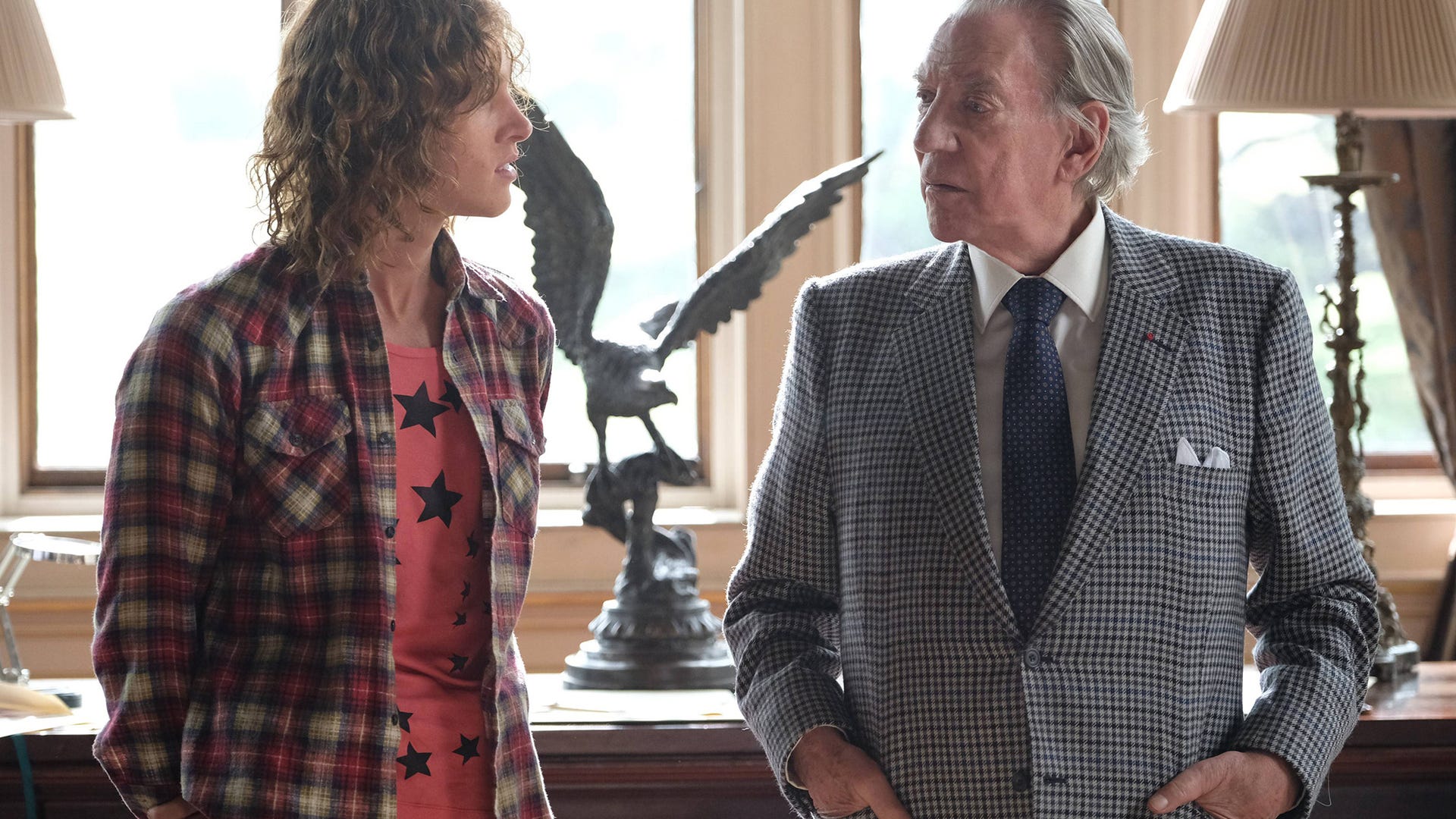Join or Sign In
Sign in to customize your TV listings
By joining TV Guide, you agree to our Terms of Use and acknowledge the data practices in our Privacy Policy.
Trust Adds a Much-Needed Dose of Strangeness to the True Crime History Genre
Danny Boyle's docudrama is captivatingly insane
FX's new docudrama Trust -- about the kidnapping of heir John Paul Getty III and the effects it has on his incomprehensibly rich and spiritually diseased family -- is crazy from the jump.
It's 1973 and the Getty family is extravagantly wealthy. These two facts are established in the first scene by the presence of Pink Floyd's song "Money," a head-slappingly obvious choice that would be dumb if it weren't so brazen. There's a party going on at a mansion that's impressive even by mansion standards. People are diving into the pool and dancing and singing along to a band that might actually be the real Pink Floyd. The light is gold and the camera floats around omnipotently until it finds the garage, where a man has locked himself inside. Women are yelling at him to come out, but instead he picks up a barbecue fork and jams it into his heart. The sickening act of violence is shocking and destabilizing, like "what the hell am I watching?" And it's the first scene of the show.
This is not your typical historical crime series.

Harris Dickinson and Donald Sutherland, Trust
Oliver Upton/FXTwo years ago, the runaway success of The People v. O.J. Simpson: American Crime Story set off a TV trend of limited series based on famous crimes from the past. Since then, there's been a wave of dramatic retellings of era-defining true events, most recently Waco, The Looming Tower, Unsolved and the just-concluded second season of American Crime Story, The Assassination of Gianni Versace. For the most part, these shows are not bad -- and are at times very good, especially Versace -- but there is a sense of diminishing returns as the rules of the genre get codified.
These docudramas lean heavily on the docu half of the equation. They give you the who, what, where, why and how, and for the most part hew pretty closely to the established truth. They take a very serious approach to the material and present it in a quasi-documentary filmmaking style that can sometimes feel like a big-budget History Channel reenactment. They make a point about a big social idea -- Waco, for example, is about the consequences of the militarization of law enforcement. The genre is starting to feel a bit stale.
Enter Trust, which gives a big, proud middle finger to all of that.
The broad strokes of the story are true (and also covered in last year's Ridley Scott movie All the Money in the World). John Paul Getty III (called Paul) did get kidnapped in Rome in 1973 and was held by mafiosos who cut his ear off and mailed it to a newspaper. His grandfather, J. Paul Getty, who was considered the richest man in the world at the time, really did initially refuse to pay the ransom. Even the weird things like Getty's harem of mistresses and 16-year-old Paul's libertine life in Rome are rooted in fact. But the show plays fast and loose with the historical record in other ways, most notably by depicting Paul as complicit in his own kidnapping, at least initially, which is to this day a point of contention that's so contentious that Paul's sister is considering legal action against FX. (The real John Paul Getty III died in 2011.)
The Bizarre True Kidnapping Story Behind FX's New Drama Trust
Trust is an unabashedly sensationalized version of the story, which frees it up to sensationalize its filmmaking, too. It's far less concerned with being true to the facts than with being vividly entertaining. And so it ditches the documentary pretense in favor of stylization and theatricality. The first three episodes are written by creator Simon Beaufoy (Slumdog Millionaire, The Full Monty) and iconoclastically directed by Danny Boyle (Trainspotting, Slumdog Millionaire), who gives each episode its own distinct identity. The second episode is dominated by split-screens and kooky '70s-style transitions and Brendan Fraser's character soliloquizes directly to the camera, none of which are things you would predict would happening after watching the first episode's coked-up Shakespearean drama.
The playfulness extends to the acting, too. The first episode is a showcase for Donald Sutherland's grand King Lear-like performance as J. Paul Getty. He has no love for anyone and weaponizes his scorn. He has his butler read erotic literature to him as he pleasures himself under his robe in preparation for an encounter with one of his four mistresses. There are a few close-ups of Sutherland's Cliffs of Dover face that seem to exist out of space and time of the show. There's a repeated symbolic image of a crow with its foot caught in a chain-link fence but it's unclear what it's supposed to signify. Later episodes contain an apparently all-seeing human statue street performer who literally points characters toward where they need to go. The whole show is bonkers like this. It's like Danny Boyle is hallucinating it into existence.
The true story Trust is based on seems fake. It's just too over-the-top. The characters are larger-than-life and seem like caricatures. But they were really like this. Getty really did have a payphone in his manor. The rich are crazy, and Trust makes hay of this fact.
Trust premieres Sunday, March 25 at 10/9c on FX.
